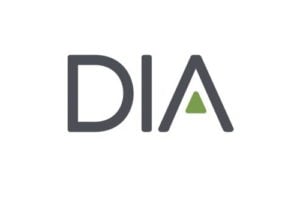MSD KK’s Fumitaka Noji, writing in the January 2023 edition of DIA’s Global Forum magazine, outlines some of the key upgrades that Japan’s innovation ecosystem needs to become globally competitive once again, namely around strategy and information, investment, and finding qualified experts.
Although the importance of open innovation in drug research and development has long been recognized in Japan, it cannot be said that the open innovation ecosystem in Japan is functioning sufficiently when many issues remain problematic or unresolved in terms of systems, funding, and human resources compared to Europe, the US, and China. This situation was made even more evident by the COVID-19 pandemic.
As a countermeasure, in addition to regulatory policy measures such as establishing a novel regulatory review/approval system for medical products, it is essential to urgently establish and operate an ecosystem that effectively utilizes open innovation from drug discovery research and development (R&D) to manufacturing and commercialization. This article illustrates several challenges to open innovation in drug research and development in Japan.
In the US, most of the drugs approved by FDA originate in academia and bioventures (Japanese only), demonstrating that these two entities (the former often supported by government funding, e.g., NIH) are the main players in drug research and development. But it is less common in Japan (Japanese only) to see drugs developed collaboratively by academia and industry receive regulatory approval even though 70% of researchers in the life sciences field belong to universities (Japanese only) and are actively conducting basic research. Well-known drugs such as crizotinib, mogamulizumab, trametinib, and nivolumab that target a disease-related molecule discovered by a Japanese researcher* are the few success stories of drugs commercialized as a result of industry-academia collaborations in Japan.
To improve this situation, it is necessary (1) to find excellent “seed” technologies from the perspective of pharmaceutical companies and related scientific interests since they conduct clinical development, manufacturing, and marketing; (2) to promote collaboration between various academic centers and pharmaceutical companies; and (3) to create an ecosystem for the practical application of research results. But the following challenges remain.
Challenges in Strategy and Information
The major platforms for promoting open innovation in Japan focus on providing one-stop opportunities for academia or industry that have novel seeds or technologies to find potential collaboration partners to further their development.
When considering how to pursue the practical application of seeds or technologies in collaboration with pharmaceutical companies, it is essential for academic or industry researchers to consider profiles on pharmacology, pharmacokinetics, safety, and manufacturing/CMC. They must also consider intellectual property rights, feasibility studies, marketing strategy, and regulatory strategy.
However, it is not so easy for academia or bioventure companies to investigate and analyze these points on their own. Conversely, experts in each of the above fields are considered essential in industry. But the expertise to identify and resolve challenges with such issues is rarely if ever sufficiently established in academia or bioventures.
For their part, pharmaceutical companies considering collaboration with academia or bioventures for novel seeds or technologies must clarify their desired target product profile (TPP) during due diligence, in order to minimize the risks normally associated with business investments. In cases where the drug TPP was not clarified, significant gaps arise between the information provided by academia or bioventures and the information required by pharmaceutical companies.
Even when excellent seeds are found, academia and industry sometimes do not agree on the social value of the potential product and do not proceed further in that collaboration.



